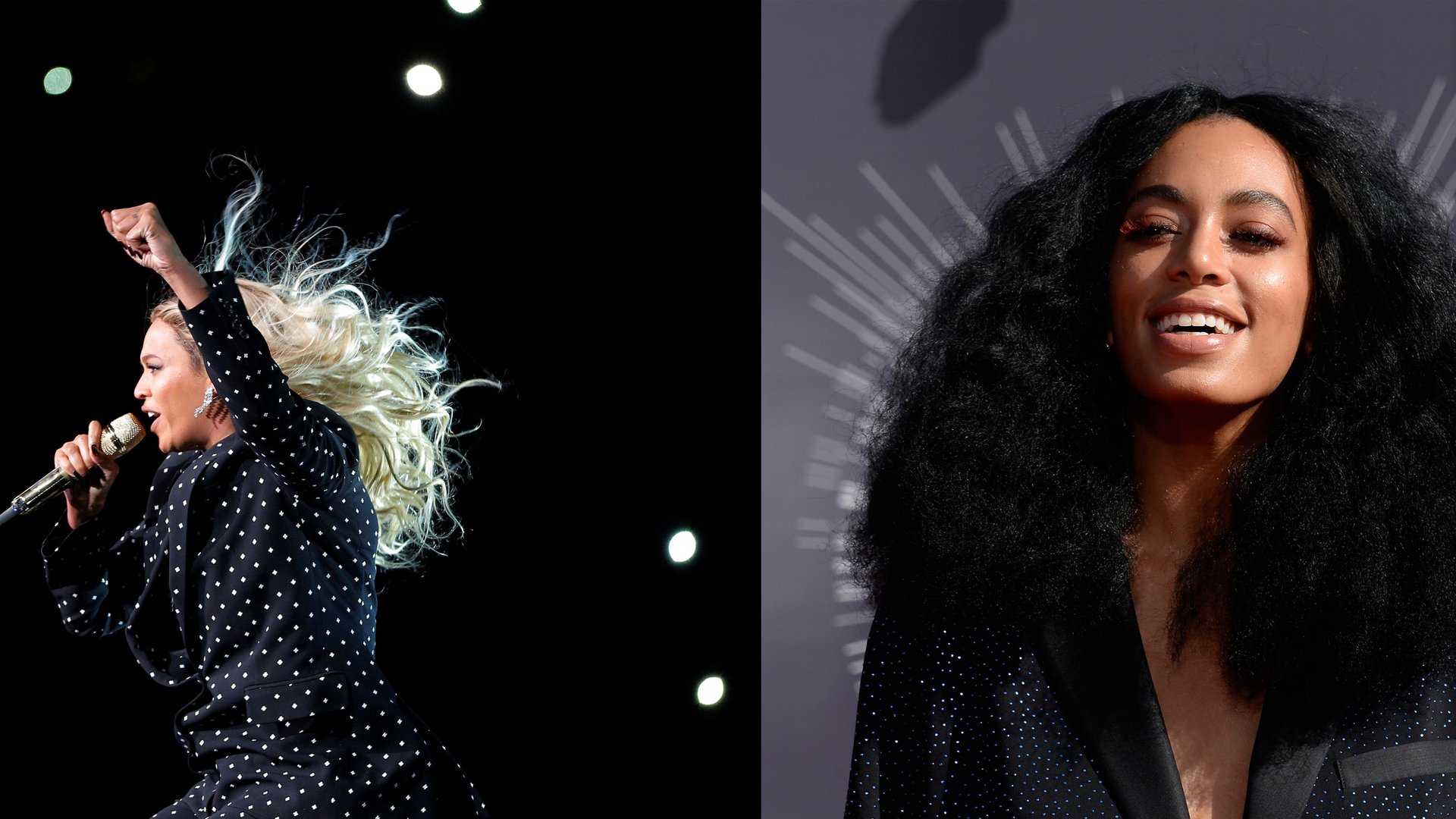“Society labels that a control freak”: Beyoncé and Solange discuss their strategy for success
In a rare, concentrated dose of star power, Interview magazine posted an interview today between Beyoncé and her sister Solange—the former the most recognizable pop star in the world, and the latter a rising household name, thanks to the success of her last album A Seat at the Table.


In a rare, concentrated dose of star power, Interview magazine posted an interview today between Beyoncé and her sister Solange—the former the most recognizable pop star in the world, and the latter a rising household name, thanks to the success of her last album A Seat at the Table.
The sisters chat about their childhood in Texas, parenting, and various music idols. But most interesting is Solange’s answer to Beyoncé’s question about the source of her success: ”You write your own lyrics, you co-produce your own tracks, you write your own treatments for your videos, you stage all of your performances, all of the choreography… Where does the inspiration come from?” Replies Solange:
I got to have a lot of practice. Growing up in a household with a master class such as yourself definitely didn’t hurt. And, as far back as I can remember, our mother always taught us to be in control of our voice and our bodies and our work, and she showed us that through her example. If she conjured up an idea, there was not one element of that idea that she was not going to have her hand in. She was not going to hand that over to someone. And I think it’s been an interesting thing to navigate, especially watching you do the same in all aspects of your work: Society labels that a control freak, an obsessive woman, or someone who has an inability to trust her team or to empower other people to do the work, which is completely untrue.
She adds later on: “It’s something I’ve learned so much about from you, getting to be in control of your own narrative. And, at this point, it should be an expectation, not something that you’re asking permission for.”
Solange’s meticulous attitude (and, it’s implied, Beyoncé’s as well) bears striking similarity to that of R&B singer Frank Ocean, who keeps an obsessively close eye on business dealings and last year ended a “seven-year chess game” with his label that involved buying back his music with his own money. Both A Seat at the Table and Ocean’s self-released Blonde took top spots on music charts when they were released last year, alongside Beyoncé’s predictably popular Lemonade. And Solange has learned not to apologize for that control.
From Interview:
BEYONCÉ: What are some misconceptions about being a strong woman?
SOLANGE: Oh my God, they’re endless! [laughs] One thing that I constantly have to fight against is not feeling arrogant when I say I wrote every lyric on this album. I still have not been able to say that. That’s the first time I’ve actually ever said it, because of the challenges that we go through when we celebrate our work and our achievements. I remember Björk saying that she felt like, no matter what stage in her career, if a man is credited on something that she’s done, he’s going to get the credit for it. And, unfortunately, that still rings true. It’s something I’ve learned so much about from you, getting to be in control of your own narrative.
Success stories that revolve around control, around talent paired with an insistence on being in charge, aren’t only found in the music business. They exist in any industry filled with egos vying for power. Just look at Silicon Valley—and its golden child, the detail-obsessed Steve Jobs, who’s got his very own section under the Wikipedia entry for “control freak.”